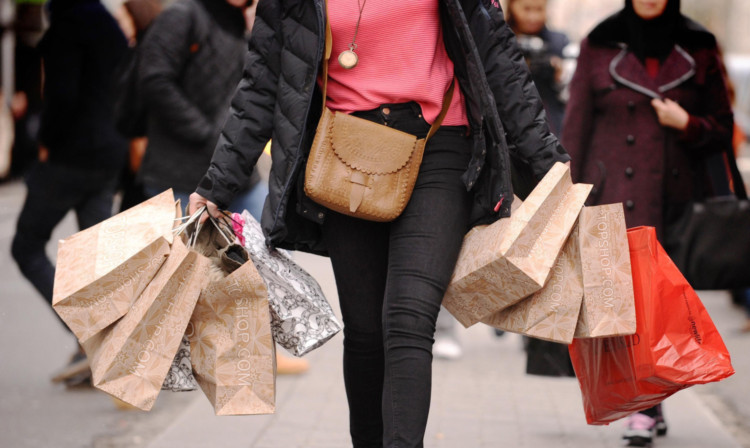The biggest shopping day on America’s festive calendar has crossed the Atlantic to Britain. Jack McKeown looks at what Black Friday has in store.
We’re familiar with the scenes from countless American films. Hordes of shoppers waiting outside department stores for hours in some cases camping on the pavement all night. As 8.59am ticks over to 9am a security guard unlocks the doors and has to leap aside as bargain hunters stampede like a herd of wildebeest.
Black Friday takes place the day after Thanksgiving in America and traditionally heralds the start of the Christmas shopping season. Of course, the 9am opening was back in the dim distance of the sixties and seventies when commerce was much more quaint.
These days stores have almost aggressively early opening hours on Black Friday, with Walmart throwing open its doors at 5am, frequently to consumers who have queued since 9pm the night before. It is a business Americans take with sometimes deadly seriousness: there have been numerous injuries and even deaths due to trampling. In 2008 two people were fatally shot during a Black Friday altercation at a Toys ‘R’ Us in California.
Today this annual extravaganza is set to reach our shores, hopefully minus the tramplings and shootings we Brits should be able to teach our American cousins the meaning of the word “queue”. Retailers in the UK are promising an early Christmas bonanza with discounts of up to 70% and big players are getting involved.
John Lewis said customers will be able to save up to 50% on selected small electrical and audio items today, up to £200 on large appliances and laptops, and up to 25% on televisions.
Asda is mirroring the flash sale extravaganza that its parent company Walmart is famous for. Promising “earth shattering savings” it expects items such as a 42” LG plasma television and Cylcone Explorer tablet to sell out within two hours.
Even shops not holding specific Black Friday events are expecting a boost from today.
Susan Reid is sales director for Debenhams branches in Scotland and the north of England. She said: “The great British high street is really embracing the traditionally American Black Friday sale shopping phenomenon. It gives consumers better deals and more choice pre-Christmas. Debenhams is this week in our Great Big Gift Spectacular with up to 30% off throughout all departments, so there are some fabulous bargains to be had from now until Sunday.
“With Friday also being the last big pay day before Christmas, we are anticipating it will be one of our busiest shopping days of the year.”
There are two schools of thought over the origin of the term Black Friday. A public relations newsletter from 1961 refers to traffic jams caused in Philadelphia by the two biggest shopping days of the year, following Thanksgiving Thursday. The headache this gridlock caused for police led them to coin the term Black Friday.
By the early eighties an alternative theory had surfaced: that merchants operated at a loss for most of the year, and the bumper sales the day after Thanksgiving were what tipped their balance sheets out of the red and into the black.
At Amazon, Black Friday will be swiftly followed by next week’s Cyber Monday. The first Monday in December is the retailer’s busiest day and last year’s Cyber Monday saw Amazon sell more than 3.5 million items in the UK over a single 24-hour period.
Dr Jason Turner is a marketing lecturer at Abertay University’s Dundee Business School. He said whether Black Friday is successful in the UK will depend on how well it is marketed and how big the discounts are.
“Asda claims 40% of UK customers are aware of the term Black Friday but a straw poll of my students suggests the figure is a little less,” he said. “But if you look at how big a phenomenon Halloween is now compared to 10 years ago, thanks to the influence of America, you see just how much it can affect things.
“Thanksgiving is not really celebrated here but it is the last big payday before Christmas so that might well spur people on.
“Traditionally in Britain we’ve had to wait until the January sales to get the big bargains, which of course means you have to pay full price for your Christmas presents.
“The prospect of getting bargains could get people flocking to the shops, but it will depend on how big the discounts are. The headline-grabbing parts are discounts of up to 70%. But if that’s only on one or two items and if most things are only discounted by 10-15%, that probably won’t be enough to get people excited.
“So, basically, it all depends on whether there are real bargains to be had.”
